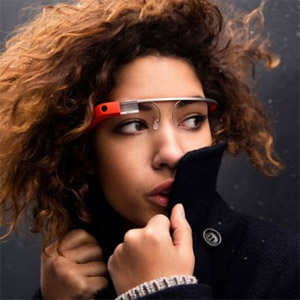 NEWS
NEWS
 NEWS
NEWS
 NEWS
NEWS
![]() Google’s wearable-computing project, Google Glass, has become something of a media phenomenon lately due to its highly innovative aspect of being able to put augmented reality and a camera right up to consumers’ eyes. No doubt this will have a great impact on the individual user experience and enable an entirely new era of digital capture of individual experience–but as with every technology, especially social technology, there is a very real cultural impact that must be addressed.
Google’s wearable-computing project, Google Glass, has become something of a media phenomenon lately due to its highly innovative aspect of being able to put augmented reality and a camera right up to consumers’ eyes. No doubt this will have a great impact on the individual user experience and enable an entirely new era of digital capture of individual experience–but as with every technology, especially social technology, there is a very real cultural impact that must be addressed.
One thing that wearing Google Glass will present is the direct impact of knowing that someone is wearing a camera. No longer is it hiding behind inside a smartphone, held up when used, but everpresent, and looking at you when the person wearing Glass glances your way. The smartphone and its camera have become ubiquitous and socially most people have become uneasily comfortable with them (after all they’re inescapable). CCTV, ATM cameras, red light cameras always watching, the state itself has become the ultimate watching-eye in most of our police fiction.
Now it’s going to be the population themselves as well capable of this sort of constant surveillance.
Mark Hurst at Creative Good sums this up nicely with a paragraph in a blog post on the subject,
The key experiential question of Google Glass isn’t what it’s like to wear them, it’s what it’s like to be around someone else who’s wearing them. I’ll give an easy example. Your one-on-one conversation with someone wearing Google Glass is likely to be annoying, because you’ll suspect that you don’t have their undivided attention. And you can’t comfortably ask them to take the glasses off (especially when, inevitably, the device is integrated into prescription lenses). Finally – here’s where the problems really start – you don’t know if they’re taking a video of you.
For science fiction readers this quickly reminds of the gargoyle class of people from Neal Stephenson’s novel Snow Crash. It’s also a common trope for news reporters to wear highly sensitive recording equipment (or followed by recording drones). Gargoyles just happen to be people who burden themselves with recording equipment in order to take a long term and highly detailed record of their surroundings; in effect, they’re constantly putting everyone around them on display (and saving the interaction forever.)
Across numerous cultures, humans maintain a sense of self based on how they control their own identity and part of that is how they edit their own memories based on how they communicate. As a result, people exist in a gamut between fully private, partially private, and mostly public–add in someone who records the entire experience and can play it back in every gritty detail and a sort of uncanny discomfort arises.
As Hurst explains in his blog post, it’s made worse when it’s a stranger or acquaintance who you cannot tell if you’re recording you or not. It doesn’t take the recognition of the Hawthorne Effect to assume that a certain amount of stress is placed on people who think what they do and say might be stored for perpetuity and they’ll be unable to coax that memory into something more comfortable in the future.
Google Glass is just the evolution of current social video technology
In spite of the obvious social ramifications of wearing Google Glass and potentially recording passersby and their conversations any fear about this is going to be a little overblown. People encountering someone wearing Google Glass will still be able to choose to interact with them or not and could presumably move away from them should they be in the vicinity. Already people may react this way when a smartphone is held up (as to record) and pointed–the difference is that Google Glass would just have an LED indicator that a recording is occurring without the “smartphone record gesture.”
In the end, Google Glass will be subject to social norms and etiquette when it’s worn and because of its obvious presence those using the device will be met with a particular amount of curiosity and potentially ostracism if they misbehave.
Already we’ve seen issues crop up where people have recorded video, taken pictures, or similar and uploaded them to social media. Facebook, Instagram, and YouTube are changing the way that we talk about the social narrative and the entire idea of what it is to be a private person but still have our likeness appear on social media sites via other people’s recordings.
A big part of this problem is as a social culture we feel like we should be able to control our likeness even when it’s part of someone else’s experience. This strange collusion between how we perceive ourselves and how we model how others perceive us has been the center of the reaction to numerous types of media.
However uncomfortable, the modern generations have taken to Facebook, Instagram, and Twitter with amazing severity and gusto. New social norms have risen up to control behavior and sharing on social media. Unsurprisingly while Justin.tv launched with the idea of someone streaming their entire life, we don’t see anyone doing that (even though we currently have the technology to record every moment with just a smartphone if we wanted.)
Perhaps the most interesting thing about Google Glass won’t be if it manages to sell well or catch on–but what people will end up doing with it once they’ve integrated it into their daily lives or their projects.
THANK YOU